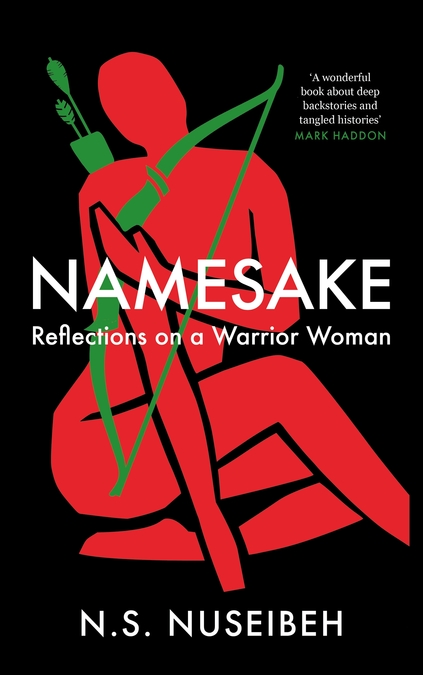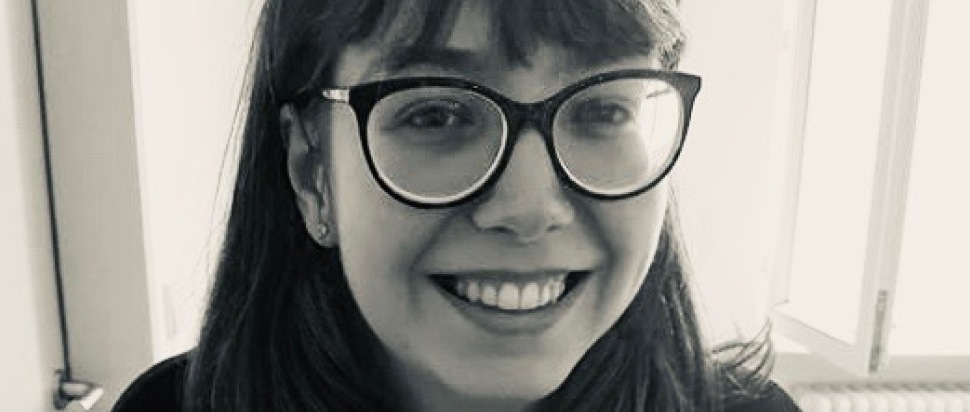N.S Nuseibeh on Palestinian essay collection Namesake
We chat with British-Palestinian author N.S. Nuseibeh about her essay collection Namesake, and connecting her life and experiences with her warrior ancestor Nusayba Bint Ka’ab
It was months before October 2023 that N.S. Nuseibeh finished writing Namesake, a collection of essays connecting her life and experiences as a British-Palestinian born in occupied Jerusalem with those of her ancestor, Nusayba Bint Ka’ab – a legendary female warrior and one the first converts to Islam in the seventh century. But while the book would not be published until the beginning of 2024, Nuseibeh’s examination of cultural identity, religious violence, and the baseless rhetoric behind anti-Islamism is more relevant now than ever.
Because of the way Nuseibeh broaches these topics, from both a personal and a historical perspective, Namesake is as vulnerable as it is informative; it serves as a bridge, not only between Nuseibeh the author and Nusayba the mythical figure, but also between the East and the West, between modernity and tradition. “I thought about using my ancestor as a kind of doorway into this early Islamic history,” Nuseibeh tells me during our Zoom call. “I wanted to find aspects of this character that either resonated or jarred with contemporary values and ideas [...] for others who, like me, know Islamic culture quite well but also for people who might not know [it] well at all. What I hope I do in the book is to make this seventh-century Arabian warrior woman feel contemporary and interesting, and, in that way, make Islam and Arab culture become more contemporary and interesting too.”

At this she undoubtedly succeeds, in part because of the candid specificity with which she juxtaposes scenes of virtual Seder celebrations and cooking breakfast with her family in Jerusalem with those of warrior Nusayba in battle, or refusing to break her fast for the Prophet Muhammad. More significantly, Nuseibeh uses these stories to illustrate the larger picture. “I find that looking at the stories that have been passed along generations suddenly makes the world feel so much smaller and more intimate,” she shares. “For instance, the fact that [Nusayba Bint Ka’ab] is said to have gone into battle with her sons, that she encouraged them to fight, that brought up a lot of questions about motherhood for me, and about what good motherhood looks like in times of conflict or under oppression.”
One of the topics that interests Nuseibeh the most is feminism within Islam. “Women suffering under the patriarchy is definitely not something unique to Islamic culture or tradition. In fact, I try to highlight in the book just how much feminism is to be found in many aspects of Islam,” she explains. In Namesake she writes about headscarves as symbols of personal autonomy, about how many of the earlier converts to Islam were women seeking the power and freedom other local religions would not offer. “My cultural identity as a Palestinian Muslim woman feels very aligned with my feminism. Although it's true that women [in Palestinian society] face difficulties, the biggest obstacle to female liberation isn't anything to do with Islamic tradition, it's the Israeli occupation and its consequences for our culture.”
Since the autumn of 2023, the increased extreme violence of this occupation has made it to the forefront of global news sites and the collective consciousness. I ask Nuseibeh about how Namesake can be recontextualised in light of the past ten months. “Ever since the genocide began, I've felt pretty dispirited about the role of culture,” she admits. “I haven't really felt able to think about or celebrate my book at all. It has felt like such a non-thing in the midst of all this. It barely feels real, if I'm honest with you,” she adds with a dispirited smile.
“The context in which I wrote and conceived of the book was one in which the question of Palestine had become less urgent and interesting to many people. It seemed like the progression of the Israeli project was kind of slow but inevitable and no one really cared,” Nuseibeh continues. “Since 7 October, two things have happened in tandem: a renewed passion for the Palestinian cause, and the re-vilification and dehumanisation of Palestinians, Arabs and Muslims. So maybe the last months have gotten more people interested in the Palestinian experience, which means they might find something worthwhile in a book that looks at the particular experience of growing up Palestinian in occupied East Jerusalem.”
More than just a record of Nuseibeh’s experiences as an Arab in and outside of Palestine, Namesake is a testament to the mechanics of apartheid and the humanity of resistance. “I would definitely feel less helpless if my book was getting outsiders to think differently about Palestinians,” she reflects. “I have had some really nice messages from people who said that they felt seen or less alone because of the book. For me, that's the most important thing, to bring comfort to anyone in this time feels wildly precious. If my book can be a bit of a source of comfort, then that’s all I want from it.”
Namesake is out now with Canongate
N.S. Nuseibeh will be appearing at the Edinburgh International Book Festival in conversation with Mairi Oliver on 18 Aug at 5.30pm
